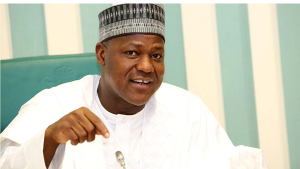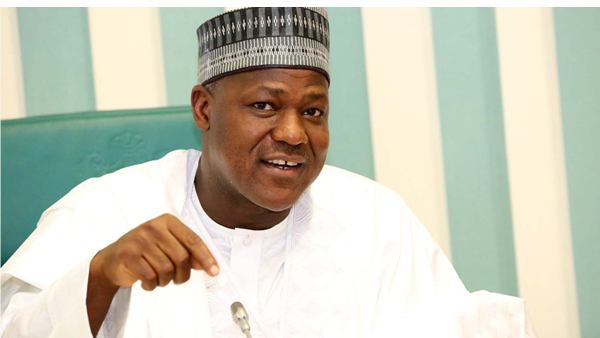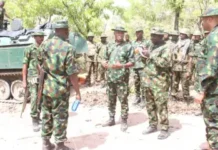The Speaker of the House of Representatives, Hon Yakubu Dogara, has expressed support for the restructuring of the existing federal system to give a sense of belonging to all Nigerians.
Dogara disclosed this while speaking on the topic: “Reforming the Nigerian federation: which way forward”, at the 3rd annual political summit organised by the Save Democracy Africa in Abuja yesterday.
He said that for true federalism to be achieved in Nigeria, a unique system of federalism that best suits Nigerian people and the local circumstances in the country must be created, in addition to having leaders who are visionary, selfless, prudent, intelligent and indefatigable and having integrity and honour.
The speaker noted that: “the talk of Nigeria’s success or genuine federalism can no longer hold waters giving the state of internal insurgencies, divisiveness, ethnic and religious schism witnessed in several parts of Nigeria. Efforts at wishing away the problem associated with Nigerian federation have only resulted into several tribal, ethnic and religious movements that have even metamorphosed into terrorist syndicates.
“One can, therefore, no longer fold his arms but engage some of the issues that have confronted us as a nation and threatened the Nigerian federation. This forum provides one of the opportunities for such interrogation. Accordingly, I commend the organisers for bringing this issue to the front burner once again.
“That Nigeria could survive despite predictions to the contrary by the World Powers not only portrays a ray of hope but also demonstrate that Nigerian Federation has come to stay.
“It is therefore incumbent on us to fashion out our own type of federalism that is best suited to our people and to local circumstances. There should be genuine efforts to build the nation. Therefore, ethnic, religious and sectional agenda should take back place. The essence of federalism is to foster unity and development. This has however, not been achieved.
“Consequently, the recruitment processes of our elective office holders are being re-visited in the Electoral Amendment Bill to ensure that the system is able to recruit the best at all strata of leadership. We need leaders who are visionary, selfless, prudent, intelligent and indefatigable and having integrity and honour.”
Dogara maintained that “there should be massive awareness to change the mindsets of the rulers and the ruled. This is where there is the need for proper education and awareness for both the rulers and the ruled. I challenge our tertiary institutions to break the disconnect between them and the political institutions and industries not only to fashion out the appropriate curriculum to drive this new orientation to confront our political and economic malaise but also to lead cutting edge research in providing correct local solutions to our diverse of problems.”
The speaker also identified some emerging issues in Nigeria’s federation such as “political gerrymandering, corruption and nepotism, state creation and boundary delimitation, electoral boundary manipulation that discriminates against voters on account of tribe, language, religion, or related status.

He said: “The same is also true of boundary adjustments, state creation and Local Governments in Nigeria. The minority tribes have complained of being short-changed. The issue of fiscal federalism and resource control. The allocation of revenue in Nigeria is presently heated as there are always allegations and counter-allegations of manipulations against the Federal Government by states. There are also allegations of zero allocation to local governments by states despite very clear constitutional provisions”.
In addition, there has been complaint of total neglect of the states that generate the revenue. As such, the derivative formula has been very contentious. There is over concentration of powers and responsibilities on the Federal Government. There are several responsibilities that can better be handled by the states. The power sharing between the Federal Government and the states will have to be revisited and the issues of the autonomy of local governments in Nigeria which state Houses of Assembly keep voting against,” he stated.


























